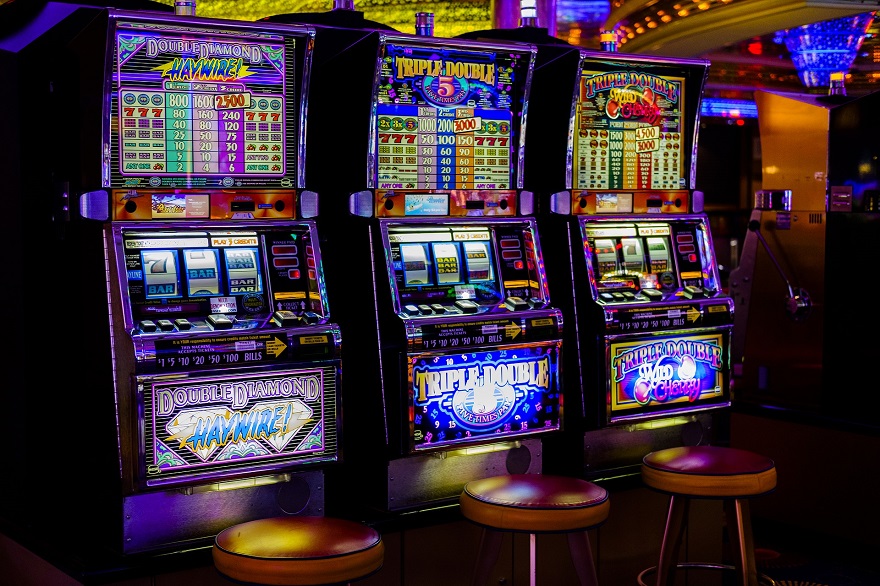
The fascinating Development of Casino Activities Over the Ages

Gambling games have captivated players throughout history, progressing from basic recreational activities to intricate adventures that integrate chance, strategy, and amusement. From the ancient roots of gambling in cultures like Mesopotamia and Rome to the extravagant corridors of modern casinos, the history of these games uncovers much about human nature and our connection with luck. As cultures have merged and technology has advanced, casino games have transformed, mirroring societal changes and developments in gameplay.
The primitive versions of gambling likely included elementary dice games and placing bets on the outcomes of sporting events. Through the years, these early games grew into more structured games like card games, the game of roulette, and the multitude slot games that populate the premises of casinos today. Every generation brought its own set of rules, design elements, and cultural importance. At present, casino games maintain their evolution with the rise of online platforms, enabling players from all corners of the globe to join in a common experience, further fusing the traditional with the digital age.
Ancient Roots of Casino Activities
Gambling games have roots that reach back to ancient civilizations, where betting was deeply entrenched in cultural traditions and social rituals. The initial known instances of gambling emerged in Mesopotamia around 3000 BC, including basic die games made from bone bones. These early activities laid the foundation for more complex betting games, demonstrating human beings' natural urge to find fortune and entertainment through luck.
As civilizations progressed, so did their betting pursuits. In ancient China, around two thousand three hundred BC, objects were unearthed that were similar to primitive rudimentary forms of a lottery activity. More structured forms of betting emerged in the Roman civilization, where games of chance were a frequent recreation, often occurring in social gatherings. The Romans developed different wagering activities, which entailed die and board games, showing the widespread nature of gambling across different economic classes.
With the passage of ages, these early games shaped the evolution of modern gambling activities. สล็อต RICHES888 In the medieval period, playing card activities became prevalent in Europe, paving the way for the professional gaming venues we know today. The shift from informal betting to organized gaming in taverns and private homes marked a significant change in how people engaged with games of luck, leading to the subsequent establishment of casinos as specialized places for gambling.
The Emergence of Modern Casino Gaming
The late 20th century marked a significant transition in the world of casino games, propelled by tech innovations and changes in societal views towards wagering. The emergence of personal computers and the World Wide Web altered the way gamblers interacted with their beloved gaming experiences. Online casinos emerged, allowing enthusiasts to enjoy timeless casino classics like poker and 21 from the comfort of their homes. This new online environment not only expanded availability to gambling options but also attracted a younger crowd who found the ease and variety appealing.
As digital gaming gained momentum, so did developments in gaming technology. The advancement of advanced programs and graphics transformed traditional casino games into captivating experiences. Gamblers could now interact with authentic dealers through live streaming, bringing the feel of brick-and-mortar casinos directly into their homes. This fusion of in-person play with online platforms created a new hybrid model that elevated the community element of gambling, making it possible for people to connect and compete with fellow gamers around the world.
Furthermore, the growth of mobile gaming substantially changed the gambling environment. With the ubiquitous use of smartphones and touch devices, players can enjoy their beloved casino games at any location, at any time. Mobile apps offer a extensive range of options optimized for mobile screens, catering to the dynamic lifestyle of contemporary gamers. This availability has produced increased participation in casino games, driving the exponential growth of the gaming industry. As a result, the prospects of casino gaming continues to develop, responding to technological advancements and shifting player expectations.
How Technology Influences Casino Games
The evolution of technology has greatly changed casino games, enhancing the overall experience for players for players around the world. As the internet emerged, online casinos were created, allowing players to enjoy their favorite games from the safety of their own homes. This shift not only made casino games more accessible but also expanded the variety of games available, as online platforms could host numerous variations of traditional games without the physical constraints of physical casinos.
Mobile technology further revolutionized the casino gaming landscape. As smartphones and tablets became widespread, players can to engage in casino games whenever and wherever they want. This flexibility has resulted in the creation of dedicated mobile applications and optimized websites that offer smooth gaming experiences. Additionally, advancements such as live dealer games have delivered the authentic atmosphere of a casino into players' homes, connecting between physical and online gaming.
Moreover, advancements in artificial intelligence and VR are leading to the next generation of casino games. AI enhances game design and player interaction, creating tailored experiences based on user behavior and preferences. Meanwhile, virtual reality offers immersive environments where players can engage in a simulated casino setting, making the gaming experience more engaging and realistic. As technology continues to evolve, the future of casino games looks promising, filled with endless possibilities for advancements and entertainment.